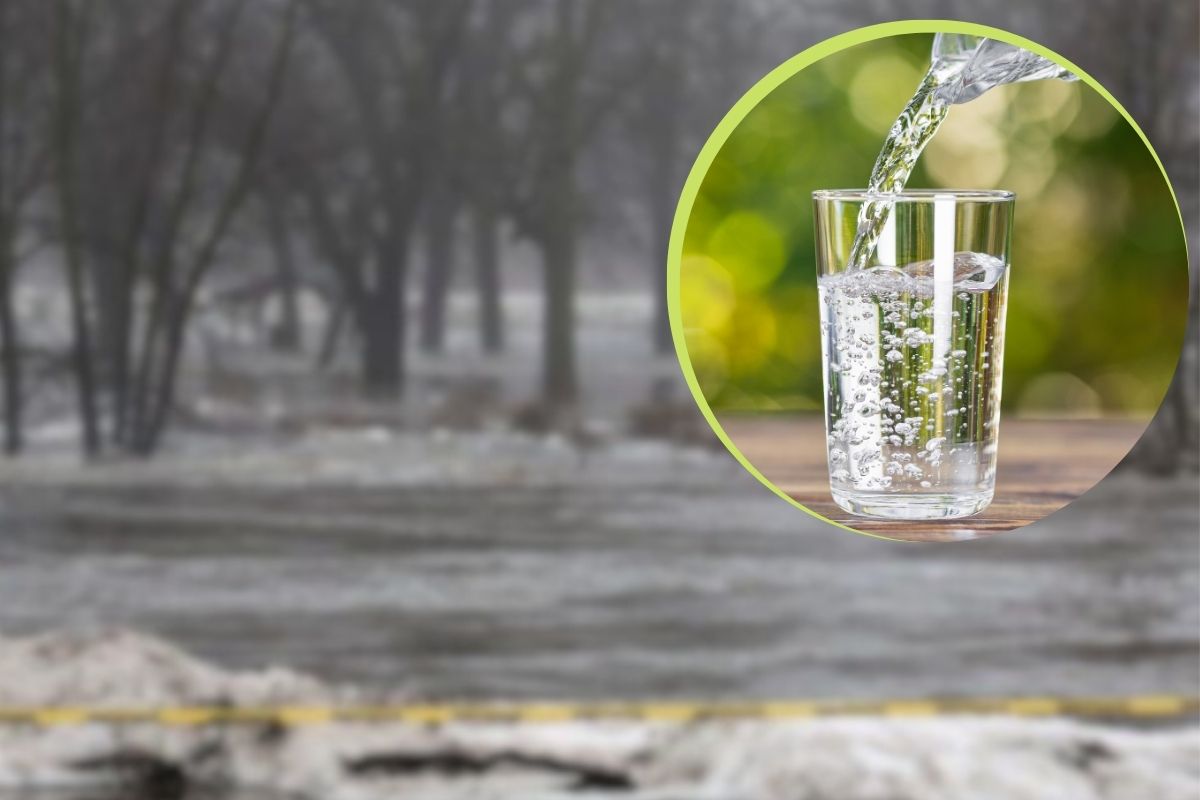On Friday, Ice Jam on Kankakee River Breaks. The Kankakee River, a picturesque waterway winding its way through northeastern Illinois, experienced a remarkable event last Friday. An ice jam that had formed during the winter months finally broke apart, captivating the attention of residents along its banks.
This natural spectacle, while stunning to behold, also brought with it a set of challenges for the communities nestled along the river’s path, including the imposition of a Kankakee boil water advisory, urging caution among residents regarding their water usage.
Ice Jams: Winter Trouble
During the winter season, when temperatures plummet and ice blankets the landscape, rivers like the Kankakee transform into a frozen wonderland. However, beneath this serene exterior lies a hidden danger: the formation of ice jams.
These icy barricades occur when chunks of ice, dislodged from the frozen riverbed, accumulate and become lodged together, obstructing the natural flow of the river. Over time, these ice jams can grow in size and complexity, presenting a formidable obstacle to the surging waters beneath.
Breakup: Nature’s Power Show
As winter gives way to spring and temperatures begin to rise, the relentless force of the river current begins to exert pressure on these icy barricades. This constant push and pull create a dynamic tension, with the ice jam precariously balancing between holding firm and succumbing to the river’s strength.
Eventually, however, nature’s power proves irresistible. With a thunderous roar, the ice jam gives way, releasing a surge of pent-up water downstream. It’s a breathtaking display of nature’s raw power, as the river reclaims its freedom from the icy grip of winter.
Boil Water Alert: Safety First
In the aftermath of the ice jam’s breakup, authorities took precautionary measures to ensure the safety of residents along the river’s path. One such measure was the issuance of a boil water advisory for several communities. This advisory was prompted by concerns over water quality following the rapid thawing of ice, heavy rainfall, and increased turbidity in the water source.
A boil water advisory is a standard protocol designed to protect public health during situations where water quality may be compromised. During such advisories, residents are advised to boil their water before using it for drinking, cooking, or any other activity that involves ingestion. This helps to kill any harmful bacteria or pathogens that may be present in the water, reducing the risk of waterborne illnesses.
What to Do During a Boil Order
Boil water for at least 5 minutes
During a boil water advisory, boiling tap water for 5 minutes is essential to kill harmful bacteria, ensuring safe consumption. It’s necessary for drinking, cooking, and hygiene practices like brushing teeth and washing produce.
Consider bottled water
Opting for bottled water provides a safe, hassle-free alternative during a boil water advisory. It eliminates the need for boiling and can be used for all activities, offering convenience and peace of mind to affected residents.
Run tap water for one minute
Before using tap water for dishes or bathing during a boil water advisory, run it for a minute to flush out any sediments or contaminants. Washing dishes with hot, soapy water adds an extra layer of cleanliness, ensuring safety.
Refrigerate boiled water
After boiling water during an advisory, refrigerate it before drinking to maintain freshness and taste. This step ensures that the water remains safe for consumption while also providing a refreshing and chilled beverage option.
Drinking water during boil advisory: Risks?
Despite the precautions, accidents can happen, and people might accidentally consume unboiled tap water during a boil water advisory. While this may cause concern, particularly for vulnerable individuals such as young children or those with compromised immune systems, the risk of severe illness is generally low for healthy adults. Symptoms, if they occur, are typically mild and transient. It’s essential to stay hydrated with safe fluids and seek medical advice if symptoms persist or worsen.
Conclusion
The breakup of an ice jam on the Kankakee River, along with the occasional occurrence of a Kankakee boil water advisory, marks the transition from winter to spring, symbolizing the renewal of life and the unstoppable force of nature.
While it may present challenges for those living along its banks, it also serves as a reminder of the resilience and adaptability of communities in the face of natural events. By following precautions and staying informed, residents can navigate these challenges with resilience and ensure the safety and well-being of their communities.
















